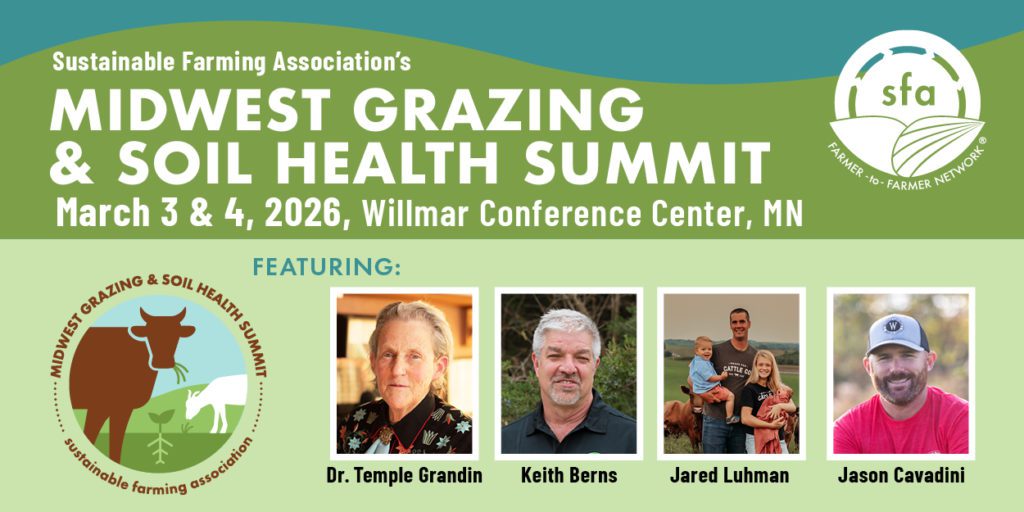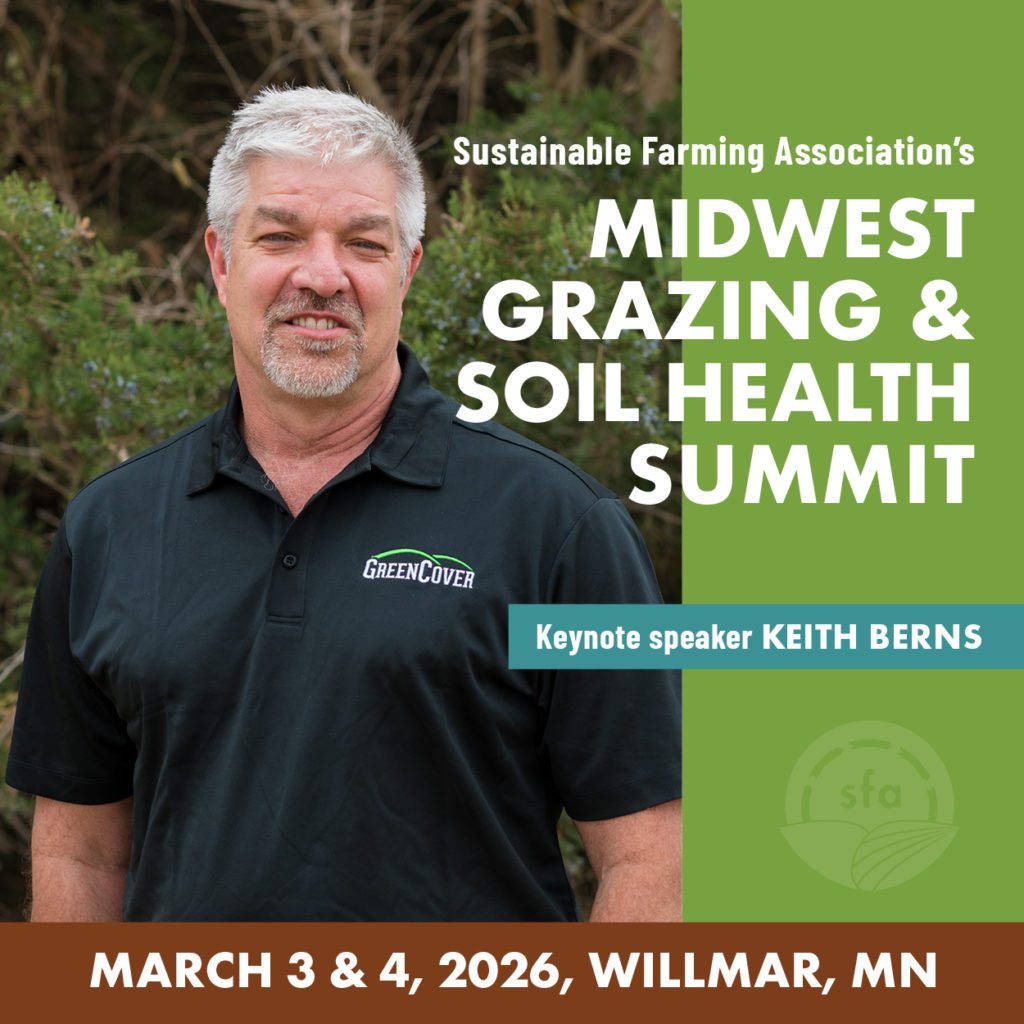Blog
FEATURE ARTICLE:
By Jonathan Kilpatrick • Farmer Education Director
I was sitting at my desk on a late-August morning, working through the usual pile of emails, calls, and an ever-encroaching calendar when my phone rang. I glanced at the screen—and my heart skipped a beat. Grandin, Temple flashed across the caller ID.
As part of my charge under the 2024–2027 SFA strategic plan, I was asked to reimagine our beloved Summit and make sure it continues to lead in an increasingly crowded space of regenerative and soil health programming. That phone call was one of those moments when you realize: we’re doing exactly that.
Why am I so stoked for this year’s summit? Because the lineup—both speakers and topics—shows how we’re evolving while still setting the pace. Last year we went north and learned from our Canadian neighbors about regenerative success in their climate, eh? This year, we’re heading south and west, with speakers joining us from Colorado, Nebraska, Oklahoma, and Wisconsin—alongside incredible homegrown talent from right here in Minnesota. Different geographies, shared purpose: exchanging paradigm-shifting practices and principles that sustain both profitability and regenerative outcomes.
This year, we’re also deliberately broadening the scope. You told us last year that you wanted more breakout sessions and more topics—so we listened. We’ve added sessions around additional pasture-based enterprises (pastured pork, anyone?) and diverse grass-producing ecosystems like silvopasture. We’ll also tackle succession and transition planning with expert CPA and founder of Thousand Hills Cattle Company, Todd Churchill. After all, what’s the point of building a great regenerative operation if we can’t pass it on to the next caretaker?
You’ll hear from Caitlin Word, a regenerative ranching consultant from Noble Research Institute with ranching roots in New Mexico, on why regenerative grazing and profitability aren’t competing goals—but synergistic tracks. Her colleague Josh Gaskamp will dig into how strong wildlife outcomes and adaptive grazing management go hand in hand.
Keith Berns, founder and co-owner of Green Cover Seeds and a Nebraska-based pioneer in the cover cropping world, will take us underground—exploring the soil’s hidden economy and why soil health doesn’t just make sense, it makes dollars. Keith’s company is well-known for developing the SmartMix Calculator for formulating cover crop and seeding mixes, a tool used frequently by SFA’s consulting team.
We’ll also welcome back SFA’s former Soil Health Lead, Jared Luhman, sharing insights from hosting more than 250 episodes of the Ranching Returns Podcast. Jason Cavadini, a grazing specialist with University of Wisconsin Extension, will walk through grazing enterprise budgets and how to build resilient forage chains using annuals and cover crops.
And as if all that weren’t enough—that phone call with Dr. Temple Grandin became a once-in-a-lifetime opportunity to welcome her to the Summit. Dr. Grandin’s contributions to livestock handling and ranching are unmatched, and her openness about her personal experience with autism has profoundly shaped how we understand working with animals—and with each other.
As much as we could keep talking about speakers and sessions, our Summit is really about you. It’s a chance to step away from the farm or ranch (don’t worry—it’ll all still be there when you get back. Trust me, it always is for me), invest in yourself, and reconnect with why you do this work. Come be inspired. Come be challenged. Come discover new ideas and connect with your regenerative community.
We designed the Midwest Grazing & Soil Health Summit with you in mind—and we’re confident you’ll leave with some ideas to transform your operation and community. We hope you’ll join us in March.
NEWS ARCHIVE:
First Local Foods & Farmer Expo a Huge Success
The newest chapter of SFA has just held its first event: the Local Foods & Farmers Expo over Zoom in late March. It was a…
Solberg on Soil: Wide-Row Corn for More Income, Soil Health?
Some recent thoughts on wide-row corn were recently discussed in Successful Farming Magazine. For producers with beef cattle, sheep or dairy replacement heifers, wide-row corn may…
Luhman: A Good time to Share Your Regenerative Story
2020 was an interesting year, presenting countless challenges from not being able to see family and friends to roller-coaster rides of commodity markets. We saw…


